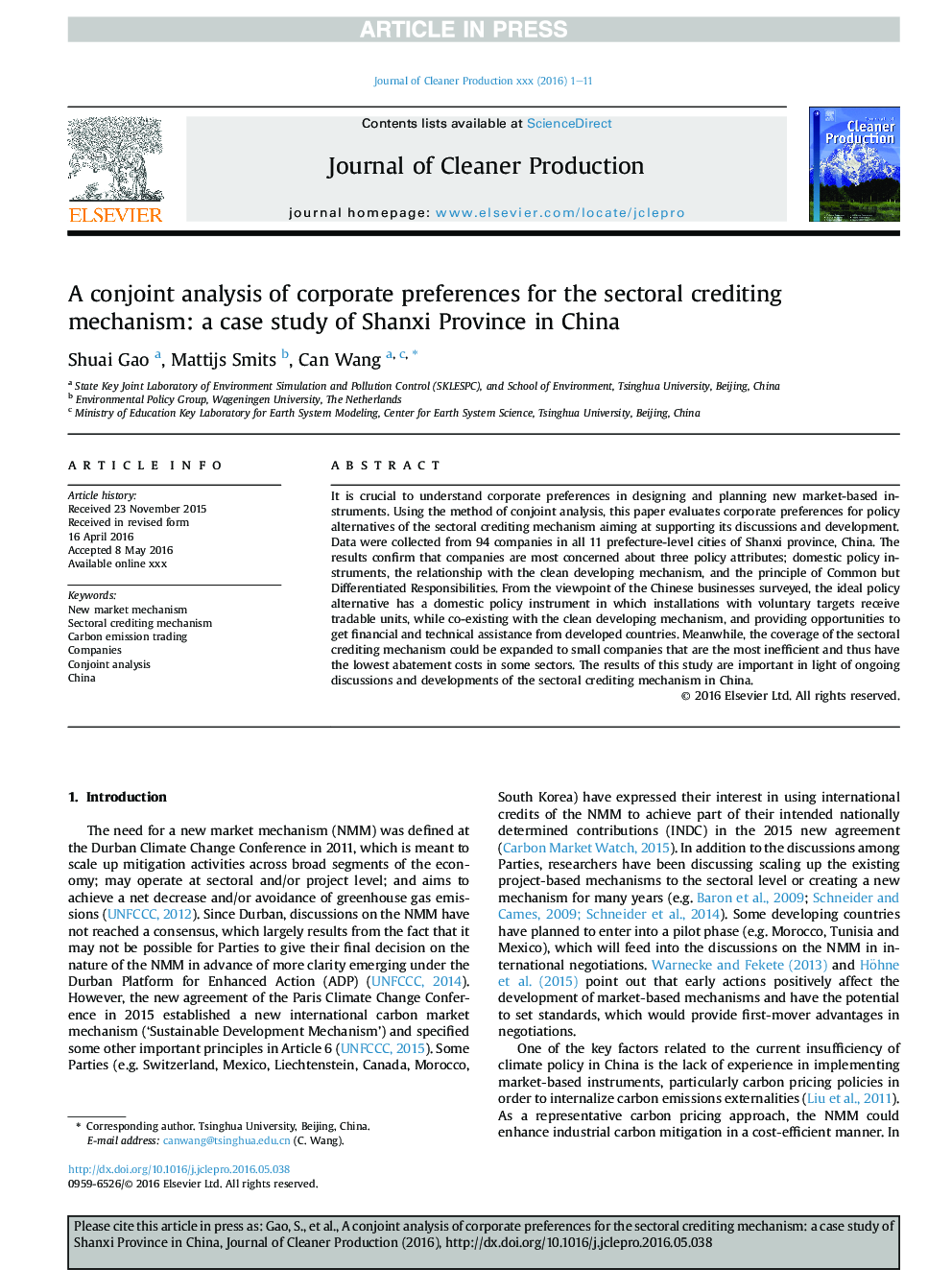| Article ID | Journal | Published Year | Pages | File Type |
|---|---|---|---|---|
| 8101588 | Journal of Cleaner Production | 2016 | 11 Pages |
Abstract
It is crucial to understand corporate preferences in designing and planning new market-based instruments. Using the method of conjoint analysis, this paper evaluates corporate preferences for policy alternatives of the sectoral crediting mechanism aiming at supporting its discussions and development. Data were collected from 94 companies in all 11 prefecture-level cities of Shanxi province, China. The results confirm that companies are most concerned about three policy attributes; domestic policy instruments, the relationship with the clean developing mechanism, and the principle of Common but Differentiated Responsibilities. From the viewpoint of the Chinese businesses surveyed, the ideal policy alternative has a domestic policy instrument in which installations with voluntary targets receive tradable units, while co-existing with the clean developing mechanism, and providing opportunities to get financial and technical assistance from developed countries. Meanwhile, the coverage of the sectoral crediting mechanism could be expanded to small companies that are the most inefficient and thus have the lowest abatement costs in some sectors. The results of this study are important in light of ongoing discussions and developments of the sectoral crediting mechanism in China.
Related Topics
Physical Sciences and Engineering
Energy
Renewable Energy, Sustainability and the Environment
Authors
Shuai Gao, Mattijs Smits, Can Wang,
